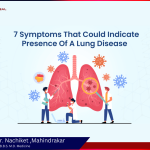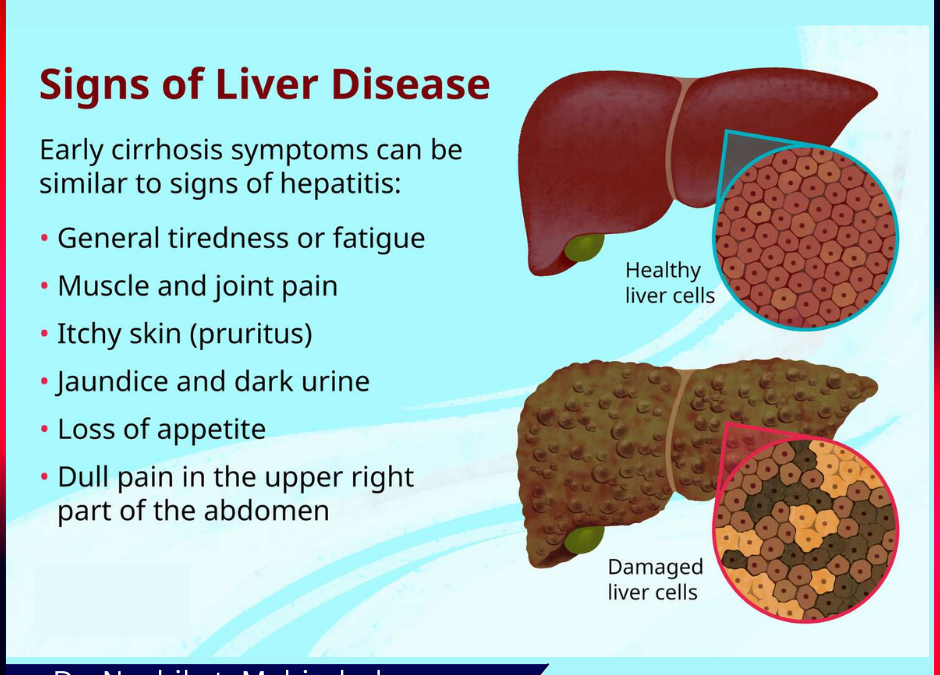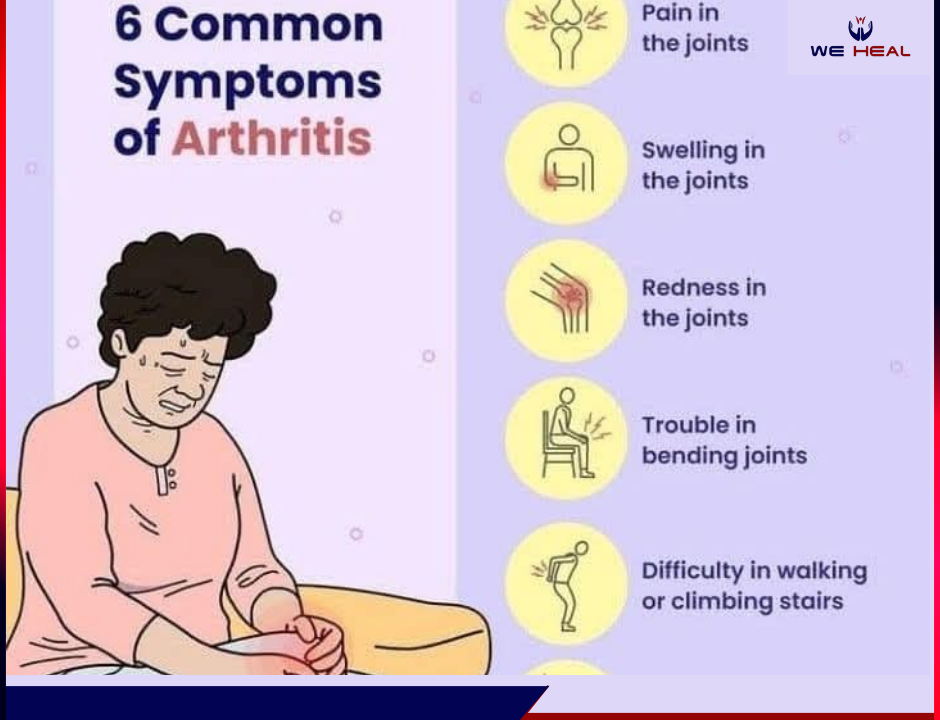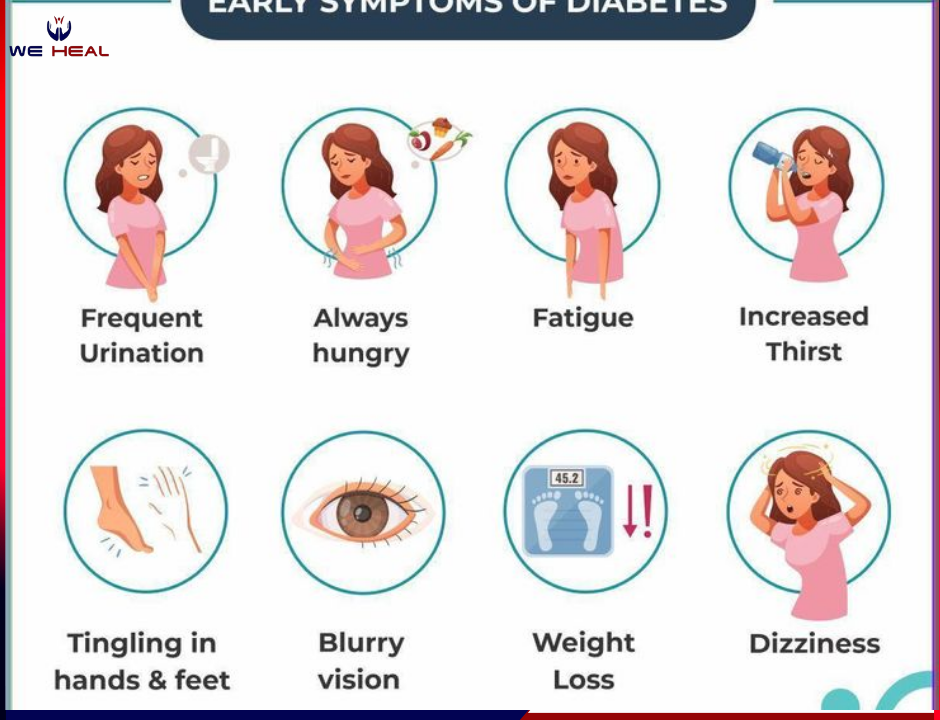
7 Symptoms That Could Indicate the Presence of Lung Disease
December 2, 2024
Knocked-Out Tooth: What to Do in the First Crucial Hour
December 16, 2024Liver disease is a silent yet impactful health condition that often goes unnoticed until symptoms become severe. At We Heal Clinic, Dr. Nachiket Mahindrakar, a trusted physician, sheds light on the signs and effects of liver disease, emphasizing the importance of early detection and treatment.
Understanding Liver Disease
The liver is a vital organ responsible for numerous essential functions, including detoxification, protein synthesis, and bile production. When the liver is compromised, it affects various parts of the body, including the skin.
Skin-Related Signs of Liver Disease
1. Jaundice
Jaundice is characterized by yellowing of the skin and eyes due to a buildup of bilirubin, a substance produced during the breakdown of red blood cells. This is a common sign of liver dysfunction.
2. Spider Angiomas
These are small, spider-like blood vessels visible just beneath the skin, often on the face, neck, or chest. They occur due to hormonal imbalances caused by liver disease.
3. Itchy Skin (Pruritus)
Persistent itching is a less-known but significant sign of liver problems. It is often caused by the accumulation of bile salts under the skin.
4. Pale or Dark Urine and Stool Changes
Changes in urine or stool color may signal liver issues. Pale stools and dark urine often indicate bile production problems.
5. Easy Bruising and Bleeding
The liver produces proteins necessary for blood clotting. Damage to the liver can lead to a tendency to bruise or bleed easily.
Other Effects of Liver Disease
1. Fatigue and Weakness
Chronic fatigue and lack of energy are common in liver disease due to the body’s inability to remove toxins efficiently.
2. Swelling in the Abdomen and Legs
Fluid retention, particularly in the abdomen (ascites) and legs (edema), is a hallmark of advanced liver disease.
3. Nausea and Appetite Loss
Digestive symptoms like nausea, vomiting, and loss of appetite often accompany liver dysfunction.
4. Confusion and Memory Problems
A poorly functioning liver can lead to a buildup of toxins in the blood, causing mental confusion and memory issues, a condition known as hepatic encephalopathy.
5. Weight Loss
Unexplained weight loss, coupled with other symptoms, may indicate liver disease.
How to Know If You Have Liver Disease
If you notice any of the above symptoms, consult a healthcare professional promptly. Dr. Nachiket Mahindrakar at We Heal Clinic specializes in diagnosing and managing liver diseases. Common diagnostic methods include:
- Blood Tests: Assess liver enzymes, bilirubin, and protein levels.
- Imaging Tests: Ultrasounds, CT scans, or MRIs to evaluate liver structure and abnormalities.
- Liver Biopsy: A sample of liver tissue may be taken for further analysis.
Prevention and Management
- Healthy Diet: Consume a balanced diet rich in fruits, vegetables, and lean proteins.
- Avoid Alcohol: Limit alcohol intake to prevent liver damage.
- Exercise Regularly: Maintain a healthy weight to reduce the risk of fatty liver disease.
- Vaccination: Get vaccinated against hepatitis A and B.
- Medication Caution: Avoid over-the-counter medications and supplements that may harm the liver.
Seek Expert Care
Early detection and treatment of liver disease can prevent serious complications. At We Heal Clinic, Dr. Nachiket Mahindrakar provides personalized care for patients with liver conditions, helping them regain health and improve their quality of life.
Contact us today to schedule a consultation and learn more about liver health management.




